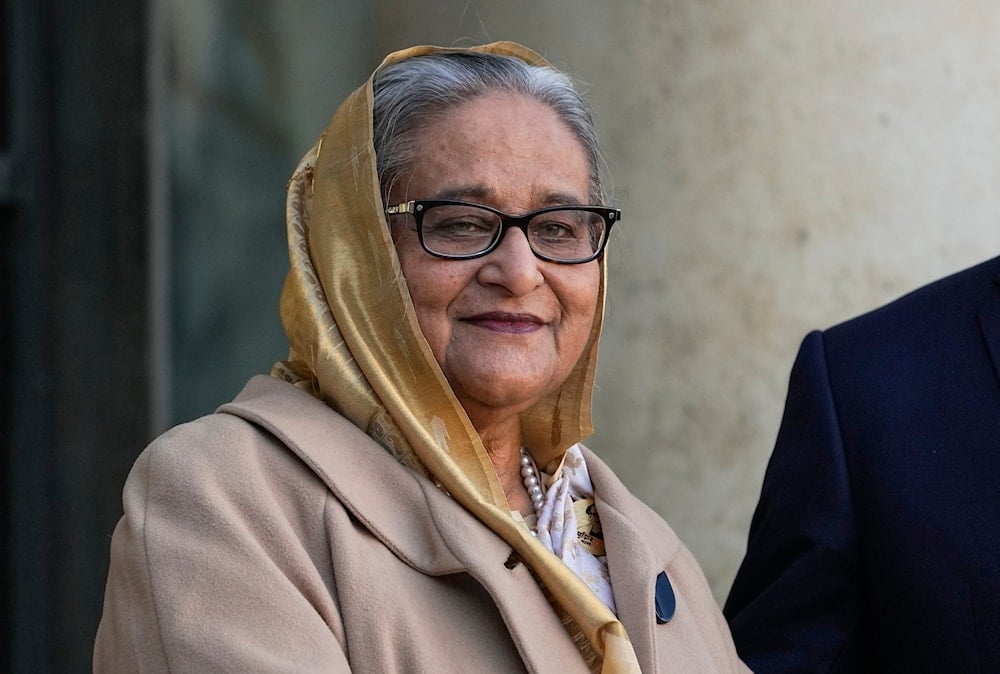Bangladesh court issues arrest warrant for ex-leader Hasina
The chief prosecutor of Bangladesh's International Crimes Tribunal says "Sheikh Hasina was at the helm of those who committed massacres, killings, and crimes against humanity in July to August."
-

Prime Minister of Bangladesh Sheikh Hasina Wazed arrives at the Elysee Palace in Paris, on November 9, 2021. (AP)
A Bangladeshi court issued an arrest warrant on Thursday for former leader Sheikh Hasina, who fled to India in August after being ousted by student-led protests.
Prosecutor Mohammad Tajul Islam described the day as "remarkable," while a relative of one of the many victims of the uprising against her administration expressed eagerness for the trial.
During her 15 years in power, Hasina's administration was marked by significant alleged human rights violations, including mass detention and extrajudicial killings of political adversaries.
"The court has... ordered the arrest of former prime minister Sheikh Hasina and to produce her in court on November 18," Islam, chief prosecutor of Bangladesh's International Crimes Tribunal (ICT), told reporters.
Islam said, "Sheikh Hasina was at the helm of those who committed massacres, killings, and crimes against humanity in July to August."
Moreover, the court also issued an arrest warrant for Obaidul Quader, the former general secretary of Hasina's Awami League party, along with 44 unnamed individuals.
In the aftermath of Hasina's ousting, many of her associates were arrested, facing accusations related to a police crackdown that resulted in the deaths of over 700 people during the unrest.
Numerous former cabinet ministers and senior officials from her party have been detained, and her appointees have been removed from positions in the judiciary and the central bank. Since fleeing Bangladesh by helicopter, Hasina has not made any public appearances.
The 77-year-old's last known location was a military airbase close to New Delhi, India.
When journalists inquired about the arrest warrant, India's foreign ministry spokesperson Randhir Jaiswal opted not to provide any comments. "She had come at short notice for safety reasons, and she continues to be in India," he said.
Hasina's presence in India, which was a key supporter of her government, has angered the interim administration that succeeded her in Bangladesh.
Dhaka has revoked her diplomatic passport, and the two countries have a bilateral extradition treaty that could enable her to return to face criminal charges. However, the treaty includes a provision that allows extradition to be denied if the offence is deemed to have a "political character."
"The court has given one month," interim foreign minister Touhid Hossain told reporters, adding "We will try to do everything to bring her back within this time."
Hossain did not indicate whether Bangladesh would submit a formal extradition request for Hasina to India.

 3 Min Read
3 Min Read








